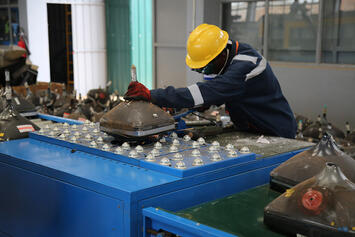
The Western democracies appear united in their support for Ukraine, but they may also be losing the bigger, more consequential battle for the loyalties of the developing world. Virtually no developing country – including democracies like India, Brazil, Nigeria and South Africa – has chosen to take steps opposing Russia’s aggression (in fact, South Africa may have joined Iran in sending weapons to Moscow). This is a stark reflection of the West’s waning influence.
The West is losing not because the developing world wants to genuflect to Vladimir Putin, or to his liege lord, Xi Jinping. Instead, we are seeing a growing disconnect between Western ‘values’, including on critical issues like food and energy production, and the needs of developing countries, many of which have struggled since the pandemic. In a period of steadily rising costs, countries such as Egypt, Pakistan and India are refusing to sanction Russian oil, allowing Moscow to match its pre-war oil exports. China has also boosted its oil purchases from Russia, as demand hits record levels.
Unlike the affluent West, people in these countries still believe in future growth. When searching for a modern Marshall Plan, they look increasingly not to America or Europe for support, but to China. China has spent hundreds of billions of dollars in bailouts for developing countries. This is not without its risks, to both the developing world and to China itself, though it has undoubtedly increased Chinese influence.
Critically, the Russian war has accelerated calls for global trade to be conducted in currencies other than the dollar, like the yuan and the rouble. Left-leaning leaders in the US’s traditional Latin American sphere of influence, such as Brazilian president Lula da Silva, are especially keen to end the dominance of the dollar.
The once-marginal alliance of BRICS countries, which met this week for talks in South Africa, represents a counterpoint to Western dominance, especially as it could soon be expanded to include new members such as Iran, Argentina, the United Arab Emirates, Egypt, Bahrain and Indonesia. China’s coup in bringing Saudi Arabia and Iran to the table presages what could be its role as a dominant global hegemon. Meanwhile, presumed US allies in the Middle East are moving closer to Russia in defence matters. This stems less from China’s or Russia’s power or persuasiveness, but more from the fact that the West is simply not offering enough to countries in the developing world, particularly to those on the brink of bankruptcy.
Africa will be increasingly crucial to geopolitics, in part due to its domination of many critical minerals – notably cobalt, coal and uranium. It is also the only part of the world likely to experience significant workforce growth in the coming decades. By 2050, United Nations projections suggest that nearly 55 per cent of the world’s population growth will occur in sub-Saharan Africa, where fertility rates are still relatively high. From 2050 to 2100, Africa is expected to account for almost 100 per cent of the world’s population growth, as populations plummet elsewhere.
African and other developing countries need to grow. They do not – indeed they cannot – embrace Western assumptions about culture, politics and, most importantly, the balance between economic and environmental goals. As rich countries age and worry about both their pensions and the planetary future, poorer countries are more focussed on how to improve conditions for the rising generation. Net Zero orthodoxy, with its embrace of degrowth and austerity, has little appeal – particularly as residents of wealthy countries, despite all their boasts about solar panels and wind farms, already use 23 times more fossil-fuel power than the average African.
Read the rest of this piece at Spiked.
Joel Kotkin is the author of The Coming of Neo-Feudalism: A Warning to the Global Middle Class. He is the Roger Hobbs Presidential Fellow in Urban Futures at Chapman University and Executive Director for Urban Reform Institute. Learn more at joelkotkin.com and follow him on Twitter @joelkotkin.
Bheki Mahlobo was born in Johannesburg, South Africa, and is a senior analyst at the Centre for Risk Analysis (CRA), a South African think tank with a global perspective. Mahlobo is a regular speaker and media commentator, providing analysis of the political and economic trends in South Africa and global markets. With John Endres, he is the coauthor of the CRA’s client Risk Alert, a weekly bulletin that identifies the key risks in South Africa and the world. He also contributes research to the Socio-Economic Survey of South Africa, the CRA’s flagship reference guide.
Photo: Rwanda Green Fund via Flickr under CC 2.0 License.













South Africa
Pretoria's decided anti-Western stance has a larger basis than you suggest.